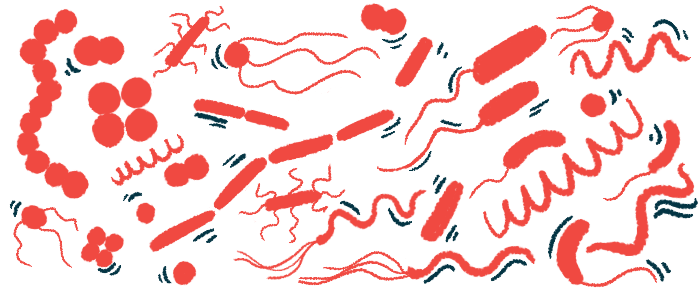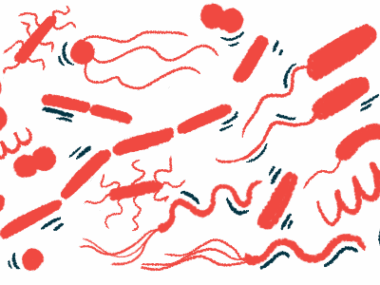Healthy bacteria fend off infectious Pseudomonas with acetic acid
Understanding these interactions may aid treatment strategies, new therapies
Written by |

Bacteria in the airways of people with cystic fibrosis (CF) can interfere with the growth of Pseudomonas aeruginosa by secreting acetic acid, a main ingredient in vinegar.
That’s according to “Airway commensal bacteria in cystic fibrosis inhibit the growth of P. aeruginosa via a released metabolite,” which was published in Microbiological Research.
Lung infections are a frequent problem in CF and P. aeruginosa plays a central role. However, commensal bacteria that reside in the human body may provide health benefits by lowering or preventing the harmful impacts of CF-related microbes.
“Owing to lack of information regarding the topic of what kind of commensals are important for keeping the healthy microbiome [the community of microbes naturally present in the human body], it remains unclear how to optimize antibiotic selection to minimize side effects on the microbiome,” wrote scientists in Germany, who collected samples of 83 bacterial strains, all previously identified as airway commensal bacteria, from people with CF.
“An analysis of airway commensals across different species with a standardized method is therefore in demand,” said the researchers, who grew the strains with Pseudomonas to look for ones that could reduce Pseudomonas growth. Understanding these bacterial interactions “could be used to guide airway infection treatment strategies or develop novel microbiome-based therapies,” they said.
High amounts of acetic acid
The screen identified 35 different strains that inhibited Pseudomonas to varying degrees. All belong to a bacterial group called Streptococcus, said the researchers, who selected the ones with the most potent effects to assess further.
The strains effectively reduced the growth of Pseudomonas isolated from people with CF at different stages of disease and also reduced the growth of other types of bacteria that can cause lung infections in CF.
To see how the healthy commensal strains were interfering with the growth of the disease-driving bacteria, the researchers conducted a battery of molecular and genetic tests, and showed that all the selected strains produced high amounts of acetic acid, which on its own was sufficient to interfere with the growth of Pseudomonas.
When acetic acid is added to a solution, two major molecular effects occur — the acidity increases and there’s more of the molecule acetate. Both effects were needed to reduce Pseudomonas growth as the disease-causing bacteria had little problem growing in an acidic environment without acetate or in the presence of acetate in a nonacidic environment.
“The results of this study indicate that various airway commensal bacteria may inhibit the growth of CF pathogens by generating and releasing acetic acid,” wrote the scientists, who said an important takeaway is that healthy airway bacteria can be allies in fighting off lung infections. They said “attention should be paid to minimize side effects on beneficial commensal bacteria when choosing antibiotics for infection treatment.”







